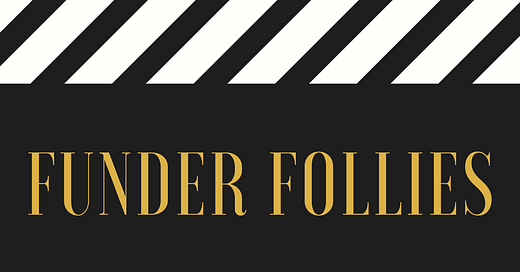I’ve confessed before that – more times than I care to admit – I’m not quite sure what will appear in the Follies from week to week, and sometimes not until the last minute.
This post is inspired by last night’s presidential debates.
What do we ask of leaders?
We crave leaders who will solve our problems. We look to leaders as icons. Funders ask about leadership:
Do you represent the community you serve?
Do you have the skills to do the job?
These are the overt questions. But then there are the subtle ones:
Did you answer the question we asked?
Do you have any data to support this belief?
Or, perhaps the most important one:
Do you see yourself in me? Do you represent me?
Pride and Connection
I’d intended to honor Pride Month as June winds down. I have been so very lucky to serve organizations that lift stories of those who’ve led the LGBTQ+ movement: The Outwords Archive is incredibly worthy of your attention (and funding), wherever you fall on the spectrum of identity or sexuality. Their stories are important for us all.
I’ve been honored to be in a room as a cisgender white woman among gay and transgender colleagues and be asked my opinion – when I wondered how it could matter. I know nothing!
But I do share that universal human desire. I crave connection through listening and storytelling.
And I stray… back to the debates of our leaders – past, present and future.
Representation
I’m not quite sure what I saw tonight, but I felt this:
Watching leaders who do not represent my identity.
A sense of “why bother,” followed by panic that many sensible people might feel the same thing and drop out of participatory democracy. (I believe – passionately – that would not leave us in a better place.)
Unworthy responses. Why can’t we stay on topic? These are important issues!
A lack of a baseline. We all have different understandings and must start from some kind of common ground, statistics or basic knowledge.
Undeserved criticism.
After the debates, commentators shared the “pulse” of the people. It seemed superficial. And unfair. It had a lot to do with age, articulation, and appearance, and not much to do with content or character. It seemed to judge some people more harshly than others. (As a woman, I remember all too well the commentary about what Hillary was wearing, when no man was evaluated this way.)
Last night, it seemed that people were reacting to fear, not optimism.
Power
We exercise our power by voting. And by giving.
But leveraging power in response to fear? I just don’t believe that is where we’re headed.
There are so many underrepresented voices with an abundance of lived experience. Pollsters, viewers and funders often seek a certain “look” for someone worthy of support (or a vote).
Can we please get past this? Let’s lift up new voices. Take a chance on hope. It is something we must do – together.





Melanie, Thank you for sharing your quandries in reaction to the debate disaster. Last evening we watched Power of the Dream (Prime)-- it was a terrific antidote to the disempowering debate.
As a former researcher and business executive, I appreciate your emphasis on identifying the critical requirements and performance indicators of leaders in general and the role of president in particular. Great analysis!